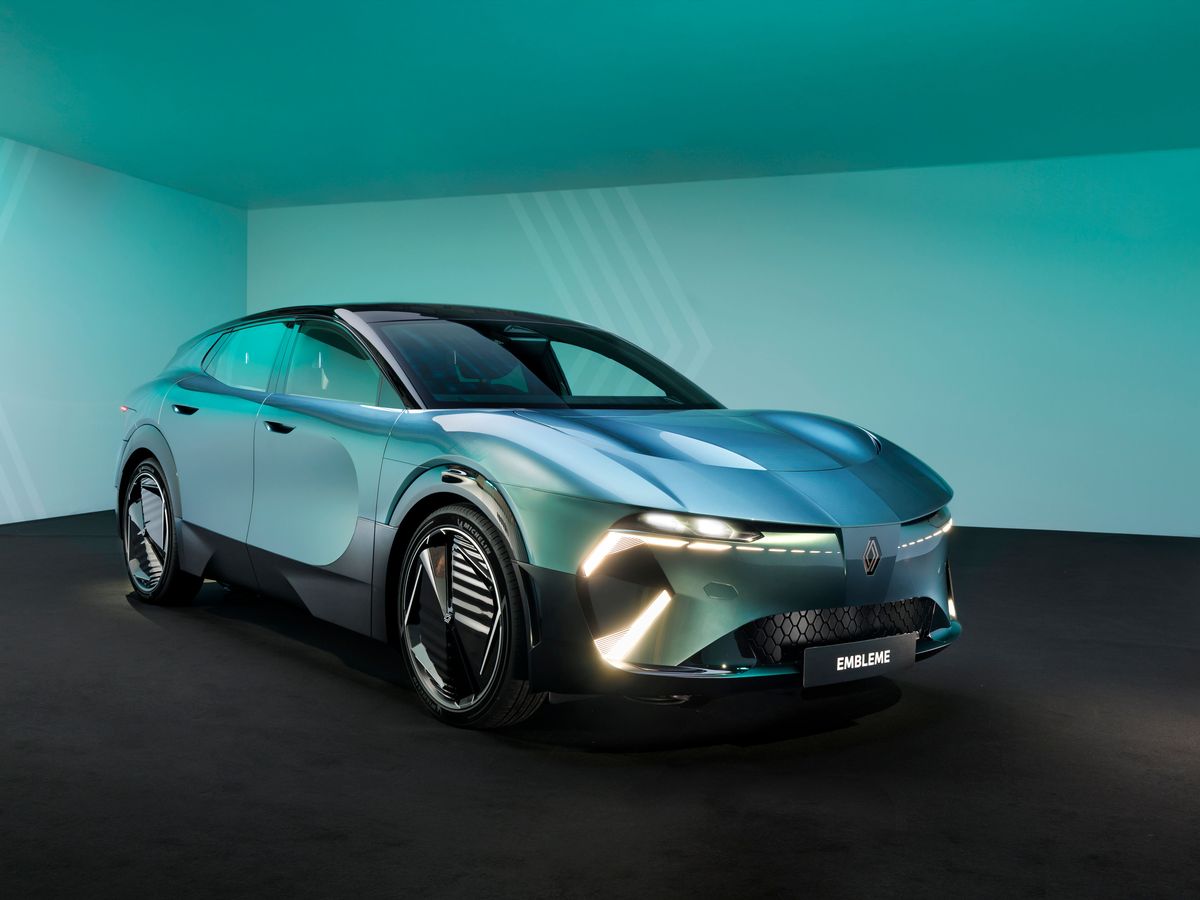Renault's Embleme Concept: Pioneering Decarbonisation in Vehicle Manufacturing
Key Ideas
- Renault's Embleme Concept showcases over 90% recyclability with sustainable materials like aluminium, carbon fibre, linen, and pineapple fibres.
- The hydrogen car features a 40kWh battery pack, a 30kW hydrogen fuel-cell, and a claimed range of 621 miles, prioritizing decarbonisation.
- Despite being a concept, the Embleme offers practicality with 556 litres of boot space and an extra 74 litres in the 'frunk', designed as a family car.
- Renault emphasizes a commitment to net-zero carbon by focusing on decarbonised and resource-respectful mobility from design to end-of-life, in collaboration with partners.
Renault unveiled its Embleme Concept, a futuristic approach to decarbonisation in vehicle manufacturing. The French company highlights the car's sustainability with a focus on recyclability, using materials like aluminium for wheels and doors, carbon fibre for the hydrogen fuel tank, and innovative choices such as linen and pineapple fibres for interior components. Clea Martinet, the vice president of sustainability at Renault, emphasized the car's role in addressing decarbonisation challenges and promoting net-zero carbon efforts throughout the production process. The Embleme Concept combines a 40kWh battery pack, a 30kW hydrogen fuel-cell, and a remarkable range of 621 miles, while offering practicality with ample storage space. Despite being a concept model based on Renault's AmpR Medium platform, there are no immediate plans for production. This innovative concept reflects Renault's commitment to sustainable practices and eco-friendly mobility solutions in the automotive industry.
